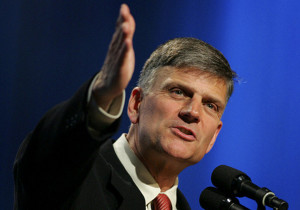Annette Ferrell is a Dallas resident who, in a letter to the Dallas Morning News, posed a question that I believe I am prepared to answer.
She wrote this in today’s newspaper: Am I the only one shocked that churches recommend political candidates? Are pastors announcing or suggesting which candidate to support to their flock? Am I mistaken that our nation was built on religious freedom from domination of any religion? Is it time to tax the churches?
Let’s see. OK, my answer is that, yes, it is time to tax churches the way we tax other institutions.
The Constitution declares only that Congress shall make no law that establishes a state religion. Beyond that, the nation’s government document is virtually silent on the issue of religion, although it does declare in Article VI that there should be “no religious test” demanded of political candidates. I suppose, though, that taxing authorities have deemed houses of worship to be untouchable, that they shouldn’t be taxed because they — ostensibly, at least — are not involved in the political process.
Well, many of them damn sure are involved.
Here’s an example I want to share briefly about something I witnessed during my first year in Texas. I attended a political rally in the spring of 1984 — in a church in Beaumont. It featured a stemwinder of a speech from the Rev. Jesse Jackson, the Baptist preacher who that year was running for the Democratic Party’s presidential nomination. Jackson had the place rockin’ with his rhetoric. It was, from a political standpoint, one of the most electrifying events I’ve ever witnessed.
The setting, though, did give me pause. That it occurred in a church troubled me at the time.
If we fast-forward to the present day, we see churches becoming involved in the election of Republican candidates for high office. Preachers have developed clever ways of dancing around their political activity. Their involvement is unmistakable.
If politicians must make their pitches in houses of worship, then the government has every right to assess tax liabilities on those places.
